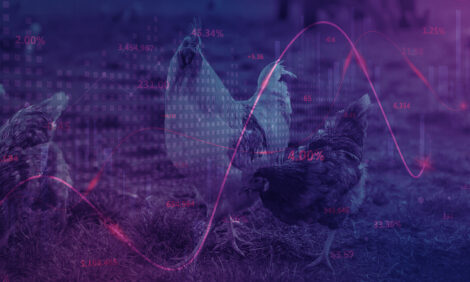



Clostridium perfringens and Clostridium septicum Toxoid to Control Cellulitis in Turkeys
The use of bivalent C.perfringens and C.septicum toxoid appears to be a valuable tool to reduce losses attributable to cellulitis in the turkey industry, report researchers in the US.Cellulitis has emerged as a major problem in the turkey industry over the last few years, according to a paper presented at the 146th American Veterinary Medical Association/American Association of Avian Pathologists Annual Meeting in Seattle, Washington State on 11 to 15 July 2009 and published in the Journal of Applied Poultry Research.
A.J. Thachil of the University of Minnesota and co-authors there and with Willmar Poultry Company and Jennie-O Turkey Store report that Clostridium perfringens and Clostridium septicum are recognised as the causative agents for cellulitis in turkeys. The objective of their study was to develop and evaluate the use of a bivalent C.perfringens and C.septicum toxoid to control cellulitis in commercial turkeys.
A bivalent C.perfringens and C.septicum toxoid was prepared and tested in six-week-old commercial turkeys under laboratory conditions for its safety and efficacy. It was then evaluated for its use in two commercial turkey farms with a consistent history of cellulitis. The flock consisted of 16,000 birds, of which 8,000 birds were vaccinated and an equal number were kept as unvaccinated controls. The two groups were separated by wire mesh. The commercial birds were vaccinated once at six weeks of age. The mortality in both groups was recorded and compared. Blood samples from birds in both groups were examined to detect the antibody response to C.perfringens and C.septicum toxoid by ELISA.
The bivalent toxoid developed was found to be safe and effective. It produced antibodies that appeared protective.
With vaccinated commercial turkeys, antibiotic use to control cellulitis was significantly less than with birds in the unvaccinated group.
The use of bivalent C.perfringens and C.septicum toxoid appears to be a valuable tool to reduce losses attributable to cellulitis in the turkey industry.
Reference
Thachil A.J., B. McComb, M.M. Early, C. Heeder and K.V. Nagaraja. 2012. Clostridium perfringens and Clostridium septicum Toxoid to control cellulitis in turkeys. J. Appl. Poult. Res. 21(2):358-366. doi: 10.3382/japr.2011-00435
Further ReadingYou can view the full report (fee payable) by clicking here. |
June 2012








